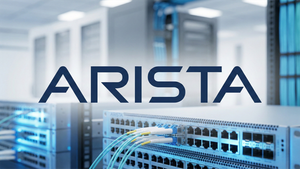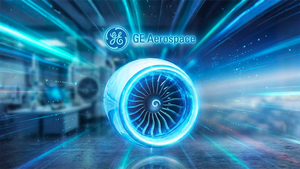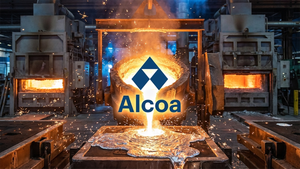Financial News
AI’s Double-Edged Sword: How the Semiconductor Industry Navigates the AI Boom

At the heart of the AI boom is the imperative for ever-increasing computational horsepower and energy efficiency. Modern AI, particularly in areas like large language models (LLMs) and generative AI, demands specialized processors far beyond traditional CPUs. Graphics Processing Units (GPUs), pioneered by companies like Nvidia (NASDAQ: NVDA), have become the de facto standard for AI training due offering parallel processing capabilities. Beyond GPUs, the industry is seeing the rise of Tensor Processing Units (TPUs) developed by Google, Neural Processing Units (NPUs) integrated into consumer devices, and a myriad of custom AI accelerators. These advancements are not merely incremental; they represent a fundamental shift in chip architecture optimized for matrix multiplication and parallel computation, which are the bedrock of deep learning.
Manufacturing these advanced AI chips requires atomic-level precision, often relying on Extreme Ultraviolet (EUV) lithography machines, each costing upwards of $150 million and predominantly supplied by a single entity, ASML. The technical specifications are staggering: chips with billions of transistors, integrated with high-bandwidth memory (HBM) to feed data-hungry AI models, and designed to manage immense heat dissipation. This differs significantly from previous computing paradigms where general-purpose CPUs dominated. The initial reaction from the AI research community has been one of both excitement and urgency, as hardware advancements often dictate the pace of AI model development, pushing the boundaries of what's computationally feasible. Moreover, AI itself is now being leveraged to accelerate chip design, optimize manufacturing processes, and enhance R&D, potentially leading to fully autonomous fabrication plants and significant cost reductions.
Corporate Fortunes: Winners, Losers, and Strategic Shifts
The impact of AI on semiconductor firms has created a clear hierarchy of beneficiaries. Companies at the forefront of AI chip design, like Nvidia (NASDAQ: NVDA), have seen their market valuations soar to unprecedented levels, driven by the explosive demand for their GPUs and CUDA platform, which has become a standard for AI development. Advanced Micro Devices (NASDAQ: AMD) is also making significant inroads with its own AI accelerators and CPU/GPU offerings. Memory manufacturers such as Micron Technology (NASDAQ: MU), which produces high-bandwidth memory essential for AI workloads, have also benefited from the increased demand. Taiwan Semiconductor Manufacturing Company (NYSE: TSM), as the world's leading contract chip manufacturer, stands to gain immensely from producing these advanced chips for a multitude of clients.
However, the competitive landscape is intensifying. Major tech giants and "hyperscalers" like Amazon (NASDAQ: AMZN), Microsoft (NASDAQ: MSFT), and Google (NASDAQ: GOOGL) are increasingly designing their custom AI chips (e.g., AWS Inferentia, Google TPUs) to reduce reliance on external suppliers, optimize for their specific cloud infrastructure, and potentially lower costs. This trend could disrupt the market dynamics for established chip designers, creating a challenge for companies that rely solely on external sales. Firms that have been slower to adapt or have faced manufacturing delays, such as Intel (NASDAQ: INTC), have struggled to capture the same AI-driven growth, leading to a divergence in stock performance within the semiconductor sector. Market positioning is now heavily dictated by a firm's ability to innovate rapidly in AI-specific hardware and secure strategic partnerships with leading AI developers and cloud providers.
A Broader Lens: Geopolitics, Valuations, and Security
The wider significance of AI's influence on semiconductors extends beyond corporate balance sheets, touching upon geopolitics, economic stability, and national security. The concentration of advanced chip manufacturing capabilities, particularly in Taiwan, introduces significant geopolitical risk. U.S. sanctions on China, aimed at restricting access to advanced semiconductors and manufacturing equipment, have created systemic risks across the global supply chain, impacting revenue streams for key players and accelerating efforts towards domestic chip production in various regions.
The rapid growth driven by AI has also led to exceptionally high valuation multiples for some semiconductor stocks, prompting concerns among investors about potential market corrections or an AI "bubble." While investments in AI are seen as crucial for future development, a slowdown in AI spending or shifts in competitive dynamics could trigger significant volatility. Furthermore, the deep integration of AI into chip design and manufacturing processes introduces new security vulnerabilities. Intellectual property theft, insecure AI outputs, and data leakage within complex supply chains are growing concerns, highlighted by instances where misconfigured AI systems have exposed unreleased product specifications. The industry's historical cyclicality also looms, with concerns that hyperscalers and chipmakers might overbuild capacity, potentially leading to future downturns in demand.
The Horizon: Future Developments and Uncharted Territory
Looking ahead, the semiconductor industry is poised for continuous, rapid evolution driven by AI. Near-term developments will likely include further specialization of AI accelerators for different types of workloads (e.g., edge AI, specific generative AI tasks), advancements in packaging technologies (like chiplets and 3D stacking) to overcome traditional scaling limitations, and continued improvements in energy efficiency. Long-term, experts predict the emergence of entirely new computing paradigms, such as neuromorphic computing and quantum computing, which could revolutionize AI processing. The drive towards fully autonomous fabrication plants, powered by AI, will also continue, promising unprecedented efficiency and precision.
However, significant challenges remain. Overcoming the physical limits of silicon, managing the immense heat generated by advanced chips, and addressing memory bandwidth bottlenecks will require sustained innovation. Geopolitical tensions and the quest for supply chain resilience will continue to shape investment and manufacturing strategies. Experts predict a continued bifurcation in the market, with leading-edge AI chipmakers thriving, while others with less exposure or slower adaptation may face headwinds. The development of robust AI security protocols for chip design and manufacturing will also be paramount.
The AI-Semiconductor Nexus: A Defining Era
In summary, the AI revolution has undeniably reshaped the semiconductor industry, marking a defining era of technological advancement and economic transformation. The insatiable demand for AI-specific chips has fueled unprecedented growth for companies like Nvidia (NASDAQ: NVDA), AMD (NASDAQ: AMD), and TSMC (NYSE: TSM), and many others, driving innovation in chip architecture, manufacturing processes, and memory solutions. Yet, this boom is not without its complexities. The immense costs of R&D and fabrication, coupled with geopolitical tensions, supply chain vulnerabilities, and the potential for market overvaluation, create a challenging environment where not all firms will reap equal rewards.
The significance of this development in AI history cannot be overstated; hardware innovation is intrinsically linked to AI progress. The coming weeks and months will be crucial for observing how companies navigate these opportunities and challenges, how geopolitical dynamics further influence supply chains, and whether the current valuations are sustainable. The semiconductor industry, as the foundational layer of the AI era, will remain a critical barometer for the broader tech economy and the future trajectory of artificial intelligence itself.
This content is intended for informational purposes only and represents analysis of current AI developments.
TokenRing AI delivers enterprise-grade solutions for multi-agent AI workflow orchestration, AI-powered development tools, and seamless remote collaboration platforms.
For more information, visit https://www.tokenring.ai/.
More News
View More




Recent Quotes
View MoreQuotes delayed at least 20 minutes.
By accessing this page, you agree to the Privacy Policy and Terms Of Service.



